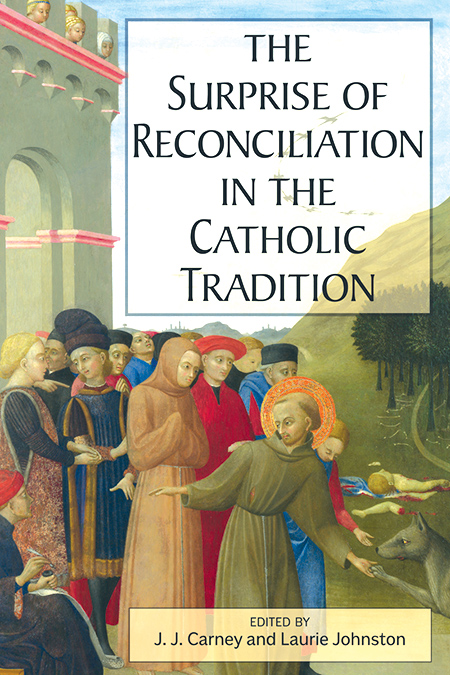In becoming the first pope to visit the Arabian Peninsula, Pope Francis evoked his namesake, St. Francis of Assisi, who, near the end of his life, journeyed to Egypt to convert the Muslim Sultan to Christianity and ended up engaging him in a dialogue about peace. In last week’s dialogue with Muslims in the United Arab Emirates (UAE), our latter-day Francis raised the issue that most mars peace between Catholics and Muslims: religious freedom.
Tu quoque! Pope Francis’s interlocutors might well have pointed out that St. Francis encountered the Sultan on the front lines of the wars of the Crusades – not one of the Church’s sparkling episodes of religious freedom. Or that early modern Catholic Spain expelled Muslims and Jews, who then found refuge under a different Sultan in the far more tolerant Ottoman Empire. Or that the Church conducted inquisitions and fought a century-and-a-half of religious wars with Protestants.
Still, Pope Francis exercised integrity in not deleting religious freedom from his message to Muslims. As I argue in my just-published book, Religious Freedom In Islam: The Fate of a Universal Human Right in the Muslim World Today, the Muslim world suffers from a deficit of this universal human right, which protects individuals and communities in their search for, practice, expression, and spread of religion. The world’s 47 Muslim-majority countries are on average far less religiously free than the entire globe and even less free than Christian majority countries. Only a few miles from the dialogue hall in Abu Dhabi are Saudi Arabia, which prohibits Christians from building churches, and Iran, which imprisons and executes Bahais.
While the Muslim world’s dearth of religious freedom demands honesty, the Catholic Church’s history forbids triumphalism – and might even offer Muslims a pathway to the future. During the era when the Church was losing its grip on its medieval temporal power, it feared religious freedom, much as many Muslims do today. Its rivals were Protestant reformers, Enlightenment intellectuals, and their political agents, who portrayed the Church as a purveyor of dungeons, superstition, and hierarchy and whose version of religious freedom sent Catholics into hiding or to the guillotine.
Eventually the Catholic Church found its way to religious freedom, which it proclaimed in its landmark declaration, of 1965, Dignitatis Humanae. Animated by this teaching and by the Second Vatican Council’s more general endorsement of human rights, Catholic churches came to challenge dictators and champion democracy in Poland, the Philippines, Chile, South Korea, and many other countries.
How did the Catholic Church travel from fearing freedom to fomenting freedom? Not by adopting the logics of its rivals but rather by developing a new teaching from its own history and tradition. Twentieth-century intellectuals such as Jacques Maritain and John Courtney Murray looked back to Tertullian, Augustine, and Thomas Aquinas for the notion that faith must be totally free. The Church’s favorable experience in the United States and in post-World War II Western Europe taught it that living under a constitution that provides genuine religious freedom need not be a threat. While opponents of religious freedom at the Second Vatican Council objected that “error has no rights,” proponents rejoined, “true, but people do.” Freedom carried the day.
Like yesterday’s Catholics, today’s Muslims widely fear religious freedom, perceiving it as a western export that is packaged with individualism, the breakdown of the family, secularism, and U.S. domination. While the Western media often opines that what Islam needs is a Reformation or an Enlightenment, Muslims are as unlikely as Catholics once were to view these episodes favorably. Regimes based on Enlightenment ideology in Syria and Egypt became torture capitals of the world in their suppression of traditional Islam. The Reformation’s fracture of Christendom is hardly an attractive future, either.
Yet, Muslims may find in their own history and tradition grounds for embracing religious freedom, much as the Catholic Church did. The Quran contains one of the strongest statements of freedom in the texts of any religion: “There is no compulsion in religion.” Muslim pioneers of religious freedom like Mustafa Akyol and Abdullah Saeed argue for the principle on the basis of the Quran, the rationalist tradition in Islamic thought, and periods of tolerance in Islamic history. Today, eleven Muslim-majority countries, eight of them in Western Africa, are religiously free. Muslims will also welcome empirical evidence that religious freedom is inversely correlated with civil war, terrorism, and poverty, all problems to which Muslim-majority countries are disproportionately prone.
Both Catholicism and Islam long predated modernity, were sharply challenged by it, and then fought back. Through embracing religious freedom, the Catholic Church reached a rapprochement with modernity, but on its own terms. Might Islam travel the same pathway? The subject is one that today’s Francis would do well to raise repeatedly in his upcoming journeys to the Muslim world.

